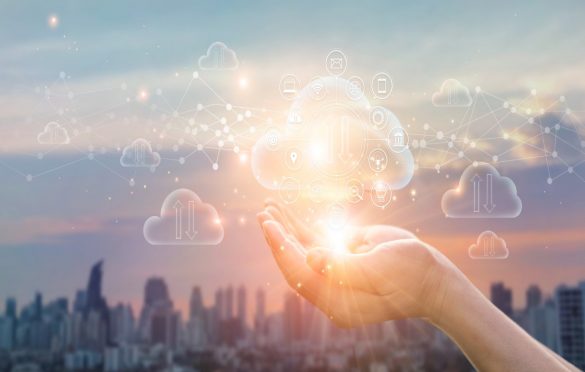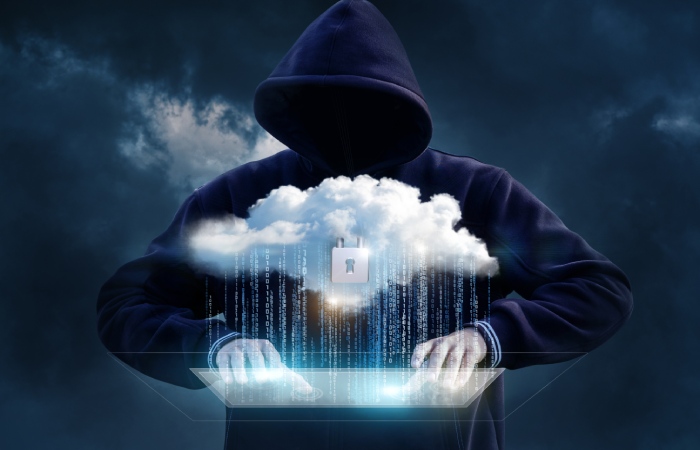
How To Protect Your Cloud Data From Cybercriminals?
Cloud computing has revolutionized the way data and information are being stored and accessed. With cloud technology, files, data, and software are easily accessible through the internet and third-party servers.
While perceived as highly secure, you can never be too careful. Cybercriminals are highly sophisticated these days and may diligently attempt to attack the cloud, so it’s best to be vigilant. These hackers will stop at nothing to discover and exploit software, hardware, and user weaknesses just to get what they want.
Below are additional security measures you can take to reinforce cloud data security:
Table of Contents
1. Install An Endpoint Protection Software

Malware, particularly keylogging software, can be deceptive. Cybercriminals often target endpoints such as smartphones and unprotected browsers. Once it’s inside your computer network, it can take your vital information and passwords and forward these to cybercriminals.
To prevent this from happening, use endpoint protection software or ask your IT security services provider to have it installed on your system. This security application protects your organization’s so-called endpoints, including servers and a personal computer, from several types of cybersecurity threats. Alongside an updated anti-virus software, endpoint protection software is a robust cybersecurity tool.
2. Encrypt Your Data
Data encryption involves decoding information and scrambling it so it could be unreadable to persons accessing it without permission, such as cybercriminals. When the data is encrypted, it passes through a cipher or an encoding algorithm. The unreadable data can only be decrypted by an authorized user who possesses the correct encryption key.
You’d want this in your file storage provider like the cloud to make it challenging for hackers to steal your information.
3. Use A VPN On Public Wi-Fi Hotspots
Connecting to a public Wi-Fi network is not recommended. Most of these connections are unsecured, making it easy for hackers to take hold of your passwords. Other access points, particularly those that require passwords, maybe better off because they’re encrypted. However, they’re not entirely safer, and hackers can still take your
If you must connect to one, however, use a virtual private network (VPN). As the name implies, a VPN provides a user with online privacy by creating a private network from a public Wi-Fi connection. A VPN does it by hiding a user’s internet protocol address and encrypts connections, making your internet use untraceable.
4. Enable Multi-Factor Authentication
Another way to make a cyber criminal’s life more challenging is to enable multi-factor authentication (MFA). It makes hacking harder because instead of merely asking for a user name and password, MFA adds another layer of security by going thru another type of authentication process.
For instance, if you want to access your bank account, the application will ask for your user details. After supplying the correct information, the bank will send a code to your verified email or phone number. You must enter this code within a specific period or you won’t be able to access your online account. With this extra layer of security, hackers will find it more challenging to steal your pertinent information.
5. Limit Accounts and Apps That Can Access Cloud Data
Cloud computing services also facilitate users to have more control over their accounts. Most cloud services allow users to link multiple emails, apps, and devices to their cloud accounts. Various links can be convenient, but they also pose potential security problems.
Accounts, the ones that we don’t use often, may be vulnerable to hacking and thus could harbor malware or ransomware. So, make an inventory of the apps linked to your cloud account and remove ones you don’t use often or no longer use.
6. Turn On Alerts
Cloud storage services provide subscribers with an option to alert themselves whenever a user logs in to their account or service or when a log-in attempt comes from a new internet protocol (IP) address or an unlisted device. This is useful not only to monitor office cloud usage but, more importantly, to detect potential hacking attempts.
7. Always Log Out From Your Account
You may have heard some horror stories on identity theft simply because the user forgot to log out from the account. The cloud system is the same. If you leave it on even after using it, it’ll be easier for cyber hackers to get into your account and steal your information right under your nose.
Logging out of an account should be practiced by all users, not just ones who keep accounts on the cloud, to enhance cybersecurity.
Wrap Up
Cloud technology employs multiple security measures to keep data secure and free from cyber threats. But as with any other technology, not everything is guaranteed, and your cloud hosting server may still be vulnerable to cybercriminals.
As a user, you are responsible for minimizing these risks by keeping cloud data safe and developing a cybersecurity culture—a few of which are discussed in this article.


